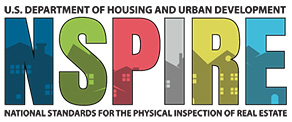Maintaining a Safe and Healthy Home: Understanding Section 8 Inspections
Here at the Harrisburg Housing Authority, we’re committed to providing you with a safe and healthy living environment from the start. That’s why we conduct two types of Section 8 inspections: initial inspections before you move in and annual inspections to ensure continued quality. We use the National Standards for the Physical Inspection of Real Estate (NSPIRE) for both.
Why are inspections important?
- Safety: Inspections ensure your home meets essential safety standards, including functioning smoke detectors, carbon monoxide detectors, and accessible exits.
- Health: They also check for potential health hazards like lead paint, mold, and infestations.
- Maintenance: Inspections identify any needed repairs or maintenance issues, ensuring your home remains in good condition.
- Fairness: Regular inspections uphold fair housing standards and guarantee equal access to quality housing for all residents.
Initial Inspections:
- Before you move in: Your new unit will be inspected before you sign the lease to ensure it meets NSPIRE standards.
- What gets inspected: All areas of the unit, including kitchens, bathrooms, bedrooms, living areas, electrical systems, plumbing, windows, doors, and safety features.
- Outcome: If the unit passes, you’re good to go! If there are any issues, the landlord must address them before you move in.
Annual Inspections:
- Once a year: Your unit will be inspected again to ensure it continues to meet NSPIRE standards.
- What gets inspected: Similar to the initial inspection, but the inspector may also check for wear and tear and overall upkeep.
- Outcome: The inspector will provide a written report with any findings and recommended repairs. Your landlord is responsible for addressing necessary repairs within a reasonable timeframe.
Preparing for your inspections:
- Initial: No specific preparation is needed. We’ll handle scheduling and access.
- Annual: Clear access to all rooms and address any known minor issues beforehand. Feel free to ask questions during the inspection.
What to expect during an NSPIRE inspection:
- Advance notice: You will receive a written notice 24 hours prior to the scheduled inspection.
- Inspector identification: Upon arrival, the inspector will show you their official identification card.
- Thorough examination: The inspector will examine all areas of your unit, focusing on:
- Kitchen and bathroom: Functionality of plumbing, appliances, ventilation, cleanliness.
- Bedrooms and living areas: Flooring, walls, ceilings, electrical outlets, windows and doors.
- Overall safety: Smoke detectors, carbon monoxide detectors, accessible exits.
- Clear communication: The inspector will discuss any findings with you on the spot and provide a written report detailing any issues and required repairs.
- Timeframe for repairs: Your landlord is responsible for making any necessary repairs within a reasonable timeframe, as outlined in your lease agreement.
Common reasons for NSPIRE inspection failures:
- Defective paint: Peeling, flaking, or worn paint can be a hazard and compromise indoor air quality.
- Porch instability: Unsafe or rotted porches pose a fall risk and require immediate repair.
- Water leaks: Leaks can indicate plumbing issues and potential mold growth, requiring prompt attention.
- Ventilation issues: Improper ventilation of the hot water tank flue can lead to carbon monoxide poisoning, a serious health hazard.
- Weak or damaged flooring: Floorboards that are weak, broken, or uneven can cause tripping hazards.
- Faulty plumbing: Leaky faucets, malfunctioning toilets, or inoperable drains require immediate repair.
- Exposed electrical components: Missing outlet covers or switch plates pose a shock hazard and must be replaced.
- Non-functioning smoke detectors: Inoperable smoke detectors put residents at risk in case of fire and are critical safety features.
Remember:
- Inspections are not meant to be punitive. They are essential to ensuring your safety and well-being.
- You can be present during the inspection and ask questions about the findings.
- If your unit fails an inspection, your landlord is responsible for making the necessary repairs promptly.
